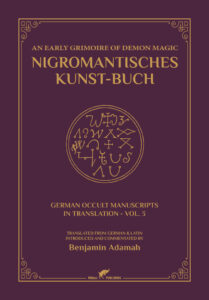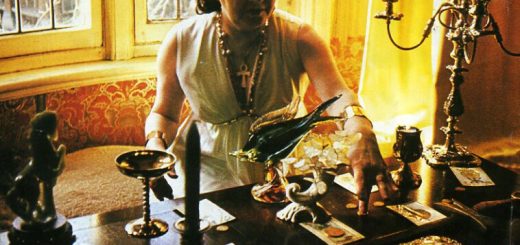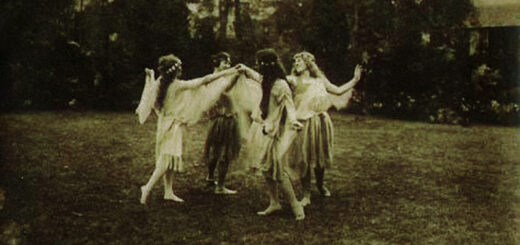Agrippa von Nettesheim (1486-1535): A Renaissance Magician and Occult Writer
Agrippa von Nettesheim, often referred to simply as Agrippa, was a remarkable figure of the German Renaissance. Born on September 14, 1486, in Nettesheim, near Cologne, Heinrich Cornelius Agrippa possessed a diverse range of interests and expertise. He was a polymath, excelling in fields such as medicine, law, theology, and the occult. Agrippa’s influence on the study of esoteric knowledge and occult philosophy, as demonstrated in his renowned work, “Three Books of Occult Philosophy,” has made him one of the most influencial figures in early modern occultism.
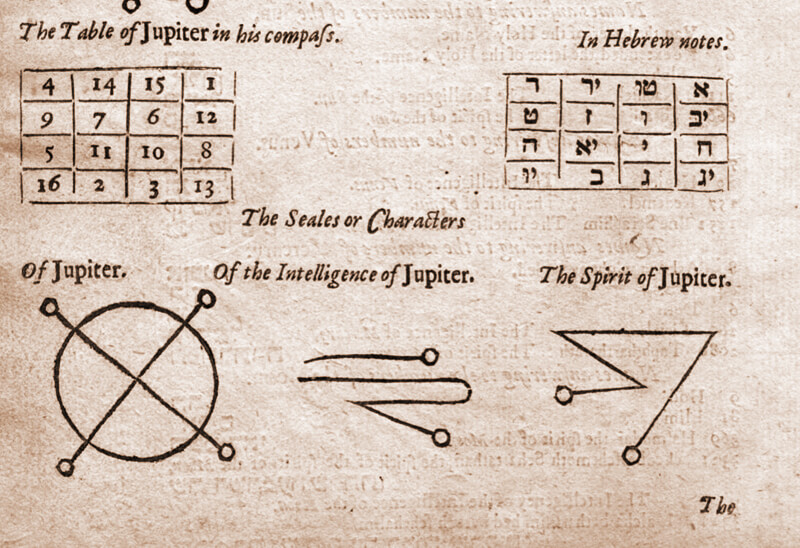
Page detail from Agrippa’s Tree Books on Occult Philosophy
Early Life and Education
Agrippa von Nettesheim hailed from a family of middle nobility, with a history of serving the House of Habsburg. He received his education at the University of Cologne, where he studied from 1499 to 1502.
It is during this time that Agrippa’s interest in the occult began to develop, likely influenced by the Albertist faction at the university, which focused on esoteric teachings.
Albert’s Speculum was one of Agrippa’s early sources of occult knowledge. He later pursued further studies in Paris, where he engaged with a secret society involved in occult practices.
 Spain, Italy and France
Spain, Italy and France
In 1508, Agrippa embarked on a journey to Spain, where he served as a mercenary. His travels took him through various regions, including Valencia, the Balearic Islands, Sardinia, Naples, Avignon, and Lyon. He eventually became a captain in the army of Maximilian I, Holy Roman Emperor, who honored him with the title of knight.
Agrippa’s academic career commenced in 1509 when he received patronage from Margaret of Austria and Antoine de Vergy. He lectured at the University of Dole on Johann Reuchlin’s “De verbo mirifico” and authored “De nobilitate et praecellentia foeminae sexus,” a work showcasing his cabalistic ideas on the superiority of women.
Despite gaining recognition for his lectures, Agrippa faced accusations of heresy by the Franciscan prior Jean Catilinet and was compelled to leave Dole in 1510.
Continued Studies and Wandering Life
Agrippa returned to Germany in the winter of 1509-1510 and studied under the humanist Johannes Trithemius in Würzburg. During this period, he dedicated the initial draft of his work “De occulta philosophia” to Trithemius.
Following this, Agrippa embarked on diplomatic missions, including a visit to England in 1510, where he engaged with prominent humanists like John Colet. He defended himself against accusations made by Catilinet and emphasized his appreciation for Jewish thought while maintaining his Christian faith.
Agrippa’s journey continued as he traveled to Cologne, taught theology, followed Maximilian I to Italy, and participated in the schismatic council of Pisa in 1512. He spent several years in Italy, studying philosophy, including the works of Marsilio Ficino and Giovanni Pico della Mirandola, as well as the Kabbalah.
Agrippa’s position as a theologian brought him to Metz in 1518, where he clashed with monks and faced disputes with the inquisitor Nicholas Savin.
He subsequently resigned and returned to Cologne, practicing as a physician in Geneva and Freiburg before assuming the role of physician to Louise of Savoy in Lyons in 1524. Later, he became the archivist and historiographer to Emperor Charles V, under the patronage of Margaret, Duchess of Savoy. Despite periods of imprisonment and opposition from the Inquisition, Agrippa continued his intellectual pursuits.
 Agrippa’s Stance and Influence on Magic and Occultism
Agrippa’s Stance and Influence on Magic and Occultism
Agrippa’s views on magic and occultism have been a subject of debate. While there is no evidence of him facing persecution during his lifetime for his interest in or practice of magic, he did oppose the persecution of witches.
Agrippa’s magnum opus, “Three Books of Occult Philosophy,” published in 1533, synthesized elements from various esoteric traditions, including Kabbalah, Hermeticism, and neo-Platonism. This work had a significant impact on the occult movements of the early modern period.
Despite being condemned as heretical by the inquisitor of Cologne, it became widely influential among scholars and practitioners interested in the occult.
Agrippa’s exploration of occult philosophy paved the way for subsequent developments in Western esotericism and had a lasting impact on the understanding of mystical and magical traditions.
You may also like to read:
Jewish magic or Kabbalah Ma’asit (Practical Kabbalah)

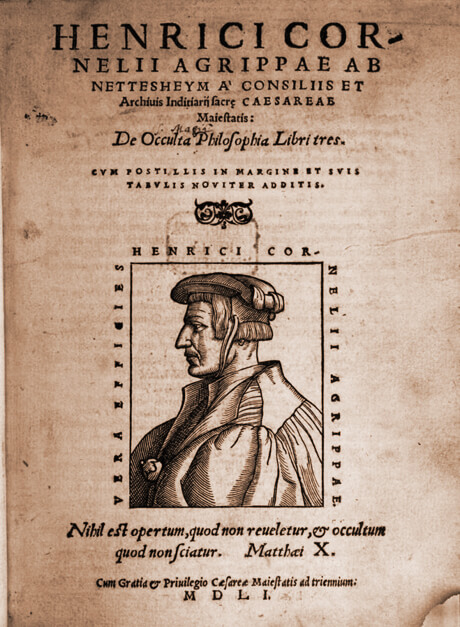 Spain, Italy and France
Spain, Italy and France Agrippa’s Stance and Influence on Magic and Occultism
Agrippa’s Stance and Influence on Magic and Occultism